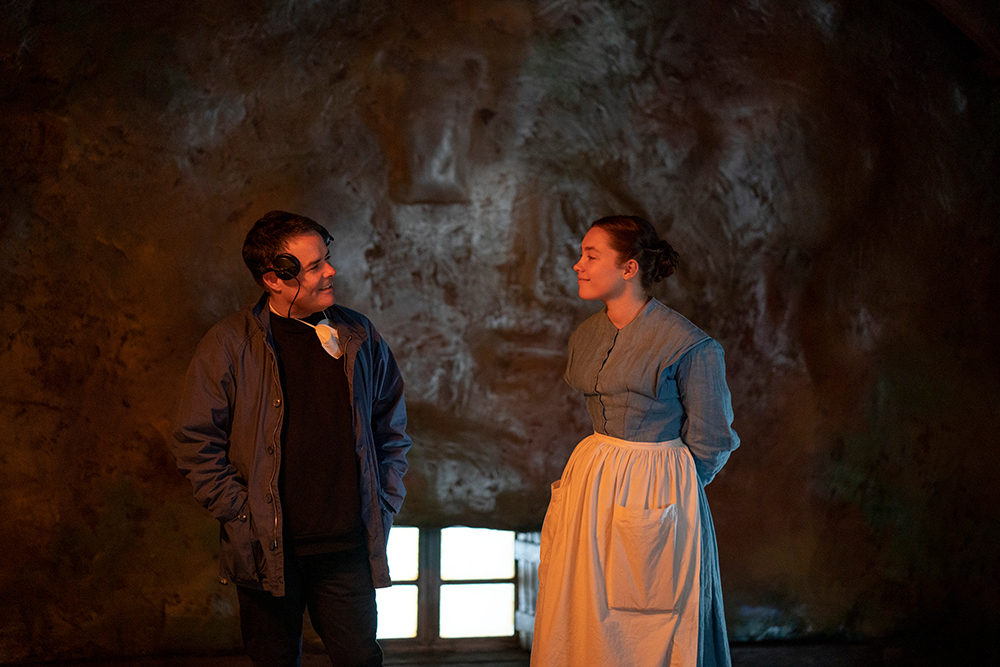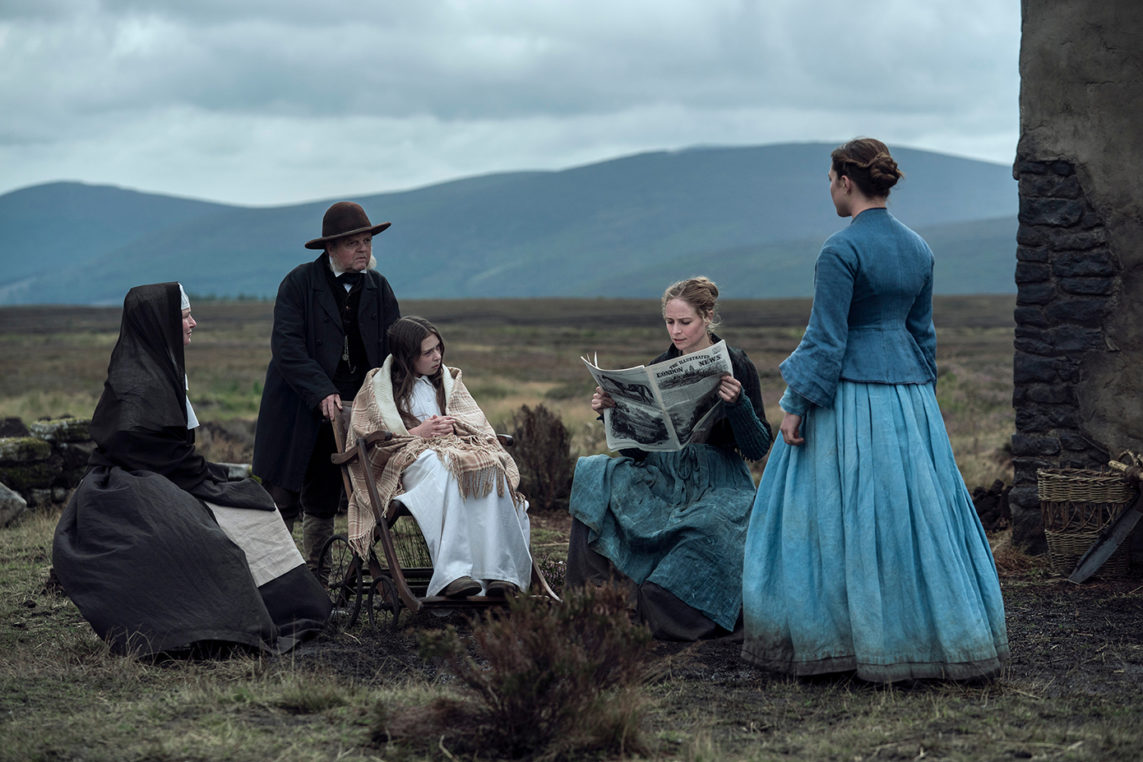Read on about the story of fantastical belief and mysterious sustenance, set in post-Famine Ireland. Directed by Sebastian Lelio, starring Florence Pugh
Set in 1862, the story of The Wonder is set 13 years after the Great Famine that swept across Ireland. Leading the Element Pictures-produced film, Florence Pugh plays Nurse Elizabeth/Lib Wright, an English nurse who is called to Ireland by a parish community to conduct a two-week watch over a local child. Anna O’Donnell is an 11-year-old girl who, her devout family claims, has not eaten for four whole months. We get to see the child first when Nurse Wright does, and we take as long a look.
Bright-eyed well-looking Anna apparently manages to sustain herself on what she calls, “manna from heaven”. Now a local miracle, Anna is visited constantly by awed locals who leave money for the church after meeting her. Her parents, rigid with grief for their deceased eldest son (and rigid too by terrible notions of eternal damnation) never leave her side, believing her to be a true Saint and chosen by God. At odds with the scene, Nurse Wright is a figure of medicinal science, education and pragmatism. As the sole English character in a rural Irish community – seemingly echoing with death after Empire-inflicted hunger – she struggles to see the job through without stepping in.
Nightingale nurses in the 1860s
Of course, Pugh is stellar. The Oxford native excels in taking ownership of the film – just as her character commandeers the situation into which she has been thrust. Pugh holds Nurse Wright in the manner and respect a nightingale nurse would have been met with in those times. There’s something solid about her – perhaps it’s the immediacy of her gait or the low Northern lilt Pugh perfected.
At the time, nightingale nurses were considered to be the closest thing to living angels by UK and Irish communities. To many, they were war heroes. Unlike their female counterparts who lived as mothers, wives, spinsters or widows (and naught else), nightingale nurses were listened to and respected by councils of gentlemen. Quite a powerful thing to be, for a woman, back then.
So, at first Nurse Wright can’t understand how a “professional nurse” has been imported for such a thing. Why send in such a noble figure to a scene of what she surmised, was lunacy? But we can feel Pugh holding her tongue as she observes this new world, of rolling green hills, miles of emptiness, and sincere faith in total fantasy. Her closest comrade, kind journalist Mr Byrne, is revealed to have experienced the true brutality of the famine within his own family. It’s then we see her really trying to grapple with this new kind of faith, perhaps grasping that she now finds herself in a nation driven mad with grief.

Taking the Wonder wider
Director Sebastian Lelio utilises a little bit of metanarrative to tell the story, flanking the movie with straight-to-camera engagement with a filmset background. We’re suddenly allowed to have-a-think, take stock of where we are and what we’re doing. This could be jarring, but with Lelio’s careful placing of these cold-water moments, it’s more exhilarating than uncomfortable.
In a sense, the story of a young, living saint who can go without bodily needs is at the core of Nurse Wright’s story – which is one that we the audience, sink ourselves into as the movie plays. Just as the wretched O’Donnell parents sink themselves into believing that their daughter doesn’t need to eat. One is as much of a story as the other. Lelio is masterful in showing that any one of us is liable to believe anything, because at our core, humans need stories to sustain themselves. As uncomfortable as it is to watch parents starve their own child, it is uncomfortable too to realise, all of us are equally liable to the same kind of poisonous ideologies.
The concept of the pure bodiless girl
The film was based upon The Wonder by Canadian-Irish author Emma O’Donoghue, author of The Room. During her time researching this time period, O’Donoghue found, she claimed, around 60 cases whereby a family claimed their daughter did not require the earthly need for food. This concept of a saintly girl without bodily needs, a being so pure that she basically photosynthesises her own faith in order to live, is something that is frighteningly common across religious and ideologies worldwide. In 2016, a 13-year-old Indian girl died after a 68-day fast, a sacrifice she had hoped would save her parents’ business. Her parents supervised her starvation and reaped the benefits of being guardians of a perceived Jainist martyr. Horror once more – we might marvel at the religious fervour of those long-gone, the old-timey religious fanatics. However, the detrimental fantasy of female purity persists.
The Irish premiere
The Irish premiere was held at Smithfield’s Lighthouse Cinema. Chilean director Sebastián Lelio was in attendance. Florence Pugh walked the red carpet, as well as Irish cast members Niamh Algar, Dermot Crowley, Elaine Cassidy, and her daughter Kíla Lord Cassidy. Pugh was beautiful in a white Erdem two-piece outfit. Algar stunned in sexy and seasonal black Versace. While Elaine Cassidy an Kíla Lord Cassidy wore Irish designer Helen Cody, styled by Corina Gaffey.
What THE GLOSS thought of it…
Director Sebastian Lelio’s delicate handling of issues at the core of the story are complimented by his modern stylistic decisions – the style of the credits and metanarrative, as well as the screech and hum of the strange yet wonderful soundtrack, update the film and inject character. It makes for horrific, terrific, wonder-ful viewing. Florence Pugh is – as expected – the perfect lead, mesmerising to watch. She is well-supported by compelling Niamh Algar and affable Tom Burke.
Watch The Wonder on Netflix now.






